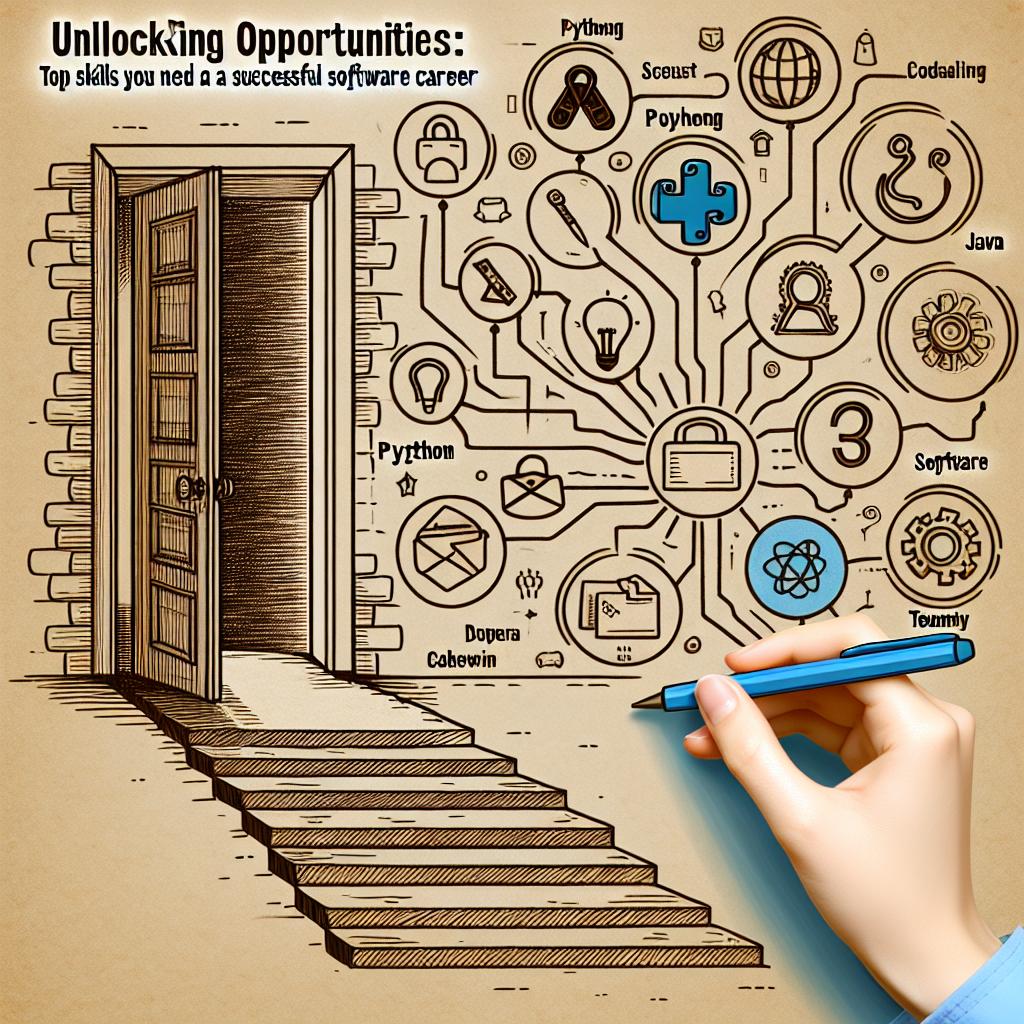In today’s technology-driven world, a career in software development offers an abundance of opportunities and the potential for continuous growth and innovation. However, to navigate this dynamic field successfully, aspiring software developers must cultivate a robust skillset. As industries continue to evolve and new technologies emerge, understanding the foundational and advanced skills required can unlock numerous career avenues. Here are the top skills necessary for a successful software career.
1. Proficiency in Programming Languages
At the core of any software development career is the ability to code. Proficiency in multiple programming languages is crucial. While some languages like Python, JavaScript, and Java are widely used across various domains, others may be niche but important for specific applications. For instance, C++ is essential for systems programming and game development, while Swift is fundamental for iOS app development. Being adaptable and willing to learn new languages as needed can significantly enhance your employability.
2. Understanding of Data Structures and Algorithms
A solid grasp of data structures and algorithms is fundamental to writing efficient and optimized code. Understanding how to select the right data structure for a given problem, and how algorithms can be applied to manipulate this data efficiently, is essential. This knowledge is also critical during technical interviews, where companies often assess a candidate’s problem-solving skills through coding challenges.
3. Familiarity with Development Frameworks
Frameworks can dramatically speed up the development process by providing pre-written code, tools, and libraries for common tasks. Knowledge of frameworks like React, Angular, Django, or Ruby on Rails can make a developer far more efficient and productive. Familiarity with both front-end and back-end frameworks can enhance your versatility and make you a more appealing candidate for potential employers.
4. Version Control Systems
Proficiency with version control systems, particularly Git, is vital for developers. Version control not only helps in tracking changes to code but also facilitates collaboration among team members. Understanding branching, merging, and pull requests allows developers to work more effectively in team settings and manage codebases more efficiently.
5. Agile Methodologies and DevOps Practices
An understanding of Agile methodologies, such as Scrum or Kanban, is highly beneficial for software developers. Familiarity with Agile practices enhances team collaboration and allows for more responsive project management. Additionally, knowledge of DevOps practices—such as continuous integration and continuous deployment (CI/CD)—enables developers to streamline operations, improve workflow, and enhance software delivery speed, which is increasingly essential in today’s fast-paced development environments.
6. Software Testing and Debugging
No software developer can escape the imperative of quality assurance. Skills in software testing, including unit testing, integration testing, and automated testing, are essential for ensuring that applications function correctly and efficiently. Furthermore, proficiency in debugging tools and methodologies can save time and resources, helping developers identify and resolve issues quickly.
7. Database Management
Most applications rely on databases for back-end storage and retrieval of data. Knowledge of how to design, implement, and manage databases is crucial for a software career. Familiarity with SQL (Structured Query Language) for relational databases and understanding NoSQL databases such as MongoDB can significantly broaden a developer’s capabilities and project scope.
8. Soft Skills and Communication
While technical expertise is paramount, soft skills are equally important in the software development field. Effective communication, teamwork, and problem-solving abilities can make a significant difference in collaborative environments. Whether it’s discussing requirements with stakeholders, sharing ideas during team meetings, or mentoring junior developers, the ability to communicate clearly and work well with others is a vital part of a developer’s success.
9. Continuous Learning and Adaptability
The tech landscape is ever-changing, making a commitment to lifelong learning imperative for software careers. Stay curious and open to new technologies, frameworks, and programming languages to remain relevant in the industry. Whether through online courses, coding boot camps, or professional certifications, continuously expanding your knowledge base can lead to new opportunities and career advancement.
Conclusion
The pathway to a successful software career is defined by a blend of technical expertise, practical experience, and soft skills. By honing these essential skills and maintaining a proactive approach to learning, software developers can unlock a world of opportunities in an ever-evolving field. Embracing challenges and striving for personal and professional growth will not only lead to a rewarding career but also enable developers to contribute meaningfully to the digital landscape of the future.




